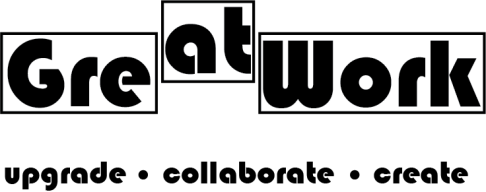As National Day approaches, I started reading about how we Singaporeans are getting ready to celebrate this important day in our calendar of public holidays.
As I pondered past national day celebrations, I could not help but think back about the newspaper commentaries written by 2 prominent people. These commentators wrote about our Singaporean youths and how they fared in the globally competitive talent market which Singapore is.
First, we had Mr Ngiam Tong Dow, the former Head of the Civil Service, saying in a Straits Times op-ed, dated 27 March 2013, entitled, Let’s Get Our Young Talent Job Ready, in which he said that our young graduates have “acquired gourmet tastes but have no clue how to fry an egg”. He further lamented that “instead of punching above our weight, we performed below our knowledge potential. Today we have thousands of young graduates becoming property agents or relationship managers selling esoteric products.”
Then we have Mr Han Fook Kwang, Managing Editor of the Straits Times, the Singapore daily, who said in a commentary in The Sunday Times dated, 30 June 2013, Do Singaporean Workers Deserve Their Wages, that several foreign-born heads of companies in Singapore were lamenting the lack of quality workers here. Specifically a head of a German MNC noted the lack of drive in the workers here compared to workers in other countries. In fact he said that Singapore workers were far down the hunger index chart compared to their German and Chinese counterparts.
In addition, Mr Kwang’s friends and colleagues also felt that Singaporean workers did not possess good communications skills and had poor reasoning and critical analytical skills. Mr Kwang further says that schools need “to make students less obsessed with doing well in exams and better at learning how to acquire skills and knowledge relevant in today’s fast changing world are so important.”.
I could not help but agree with these 2 gentlemen’s thoughts on the critical changes that our education system needs in ensuring that we continue to produce graduates who are job ready and possess the necessary skills that would justify every last penny that companies pay to secure their services in the job market.
However it is not just a responsibility that should fall squarely on the shoulders of the educational institutions. Parents are just as responsible if not more, in ensuring that their children are learning the necessary values important to guide them into successful lives and careers and not just focusing on their children doing well in school.
Below is my original parenting tips piece that I wrote for the July 2013 issue of a bulletin produced by the polytechnic for parents which focuses on character development in our children.
Character development starts at home and should be reinforced in schools and is probably the key to producing the Singaporean core of graduates that we need to ensure Singapore continues to succeed in the foreseeable future.
——————————————————————————————————————-
Character Development In Your Child
Character development is probably one of the most difficult and yet one of the most important responsibilities that parents shoulder in the overall development of our children.
Sometimes as parents we take it for granted that as long as our children stay out of trouble in school, they are on their way to developing good character.
But what is good character?
Good character (in the context of character development) refers to qualities that will enable children to grow up to be happy, well-adjusted and full-functioning members of our community.
Character is defined by values we as a community live by. Most of these values are universal irrespective of our race, religious background or nationality.
Here are 6Rs I believe are important for my children’s overall growth and development:
6 Rs
Respect – to love and respect yourself, your parents, peers, people in general
Rectitude – to have honesty & integrity and to be upright
Relationships – to build bonds with the community and to develop empathy
Resilience – ability to recover from disappointments
Resolute – to be undaunted, determined, steely work ethic
Resourcefulness – to develop the ability to think creatively to solve problems
Communicate With Your Child
It is important that as parents we communicate constantly about developing good character traits with our children.
Share with them your own life experiences and how they shaped your character and helped you to develop one or all of the 6 Rs.
Personally, I share with my children my experiences in school especially the times when I represented my school in the National School Track & Field Championships. The hard, punishing training, the camaraderie of my team-mates, the sense of being one whether in victory or in defeat – all these experiences helped shape my character and the person I am today.
Character Development Opportunities in Our Daily Lives
Be on a lookout for these opportunities everyday. It could be a community call for action to help distribute N95 masks to the elderly and needy.
It could be a run-for-a-cause event to help raise money for the under-privileged.
It could even be an instance when your child asks you to buy an expensive item. These are moments you can use to teach your child about building good character by being involved in the activity yourself.
For the record, I asked my son to start saving for the item by doing chores at home or setting aside some of his daily allowance.
Be A Good Role Model
Parents are the best role models for their children and in many cases, the only role models.
Role models are important because children often look up to grown-ups they are close to as extrapolations of themselves.
As parents, we should be mindful of that and strive to manifest the 6Rs in our daily lives if we want our children to develop good character effectively.
Life-Long Process
Character development is an on-going, life-long process. It does not end when someone reaches adulthood because life’s challenges will continue to shape our character.
As parents, it is our responsibility to provide our children with life experiences to help forge their character.
Like 19th century German writer and poet, Johann Wolfgang von Goethe once said, “Character develops itself in the stream of life”.

